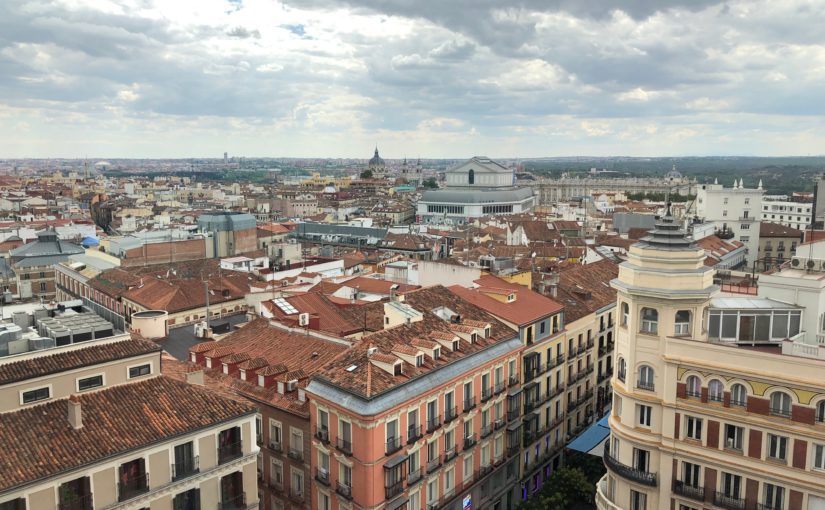Having been in Spain for a month, I am starting to learn how to recognize political tensions between regions in the country. This has been aided by my weekend travels to different cities across the country, such as San Sebastián to the North, Valencia to the East, and Barcelona to the Northeast. Not only do all of these individual regions have their own official languages outside of Spanish (even though the heavy dialect of “Valenciano” is debated to be a separate language), the most tension present between these regions stems from their desire to retain a national identity while operating under the blanket government of “Spain” centered in Madrid.
In order to more fully engage in the dilemma of balancing between national and local identities in Spanish territories, I decided to start a conversation about it with a woman I was sharing a car with from el País Vasco, or Basque Country, on my way to San Sebastián. Though there were several cases of terrorism in previous years from members of the ETA, she stated that she felt no strong desire to be independent of Spain like the generations before her. Though she found it difficult to learn Basque in school since it is a language completely independent of both Latin and Germanic influences, she recognized its importance in her future if she were to ever pursue a white collar career in her native autonomous community (the “state” equivalent on the Iberian Peninsula). I related her situation to my own region’s desire to separate from the main state of California into the state of “Jefferson” to have a political voice since conservative farmers are outvoted by mainly liberal cities with higher populations. Though I have concluded there to be benefits for Spain in controlling the rich resources of the forests and beautiful tourist attractions and economy that the North has to offer, speaking with this young woman has shown me that even though one can engage in their regional identity through language learning and keeping up tradition, this does not necessarily have to compensate or compete with national identity.
Though I did see some explicit graffiti telling tourists to “GO HOME” in el País Vasco, where I noticed the most regional tension during my time in Spain was actually in the subtle negative comments shared by those in the capital of Madrid. Though I spent much more time in this city than the other regions, it would be common to hear someone of an older generation remark “Bah! Los catalanes todavía no han cambiado!”, complaining about how the threat of succession has been present for a substantial amount of time, yet nothing has resulted from all of the fuss and talk.
As an American Studies major, this social aspect of Spanish politics was especially interesting to me since I related it to my own nation’s history of gaining independence from larger authorities. It also made me aware of my own bias towards regional independence since I connotate revolution to freedom and independence when in reality, it has more often represented the opposite for Spain (considering their history of civil war resulting in military dictatorships, famine, and mass migration to Argentina in the 1950s). My Spanish culture classes also helped me to contextualize these current events with an awareness of local realities that are different from my own.
